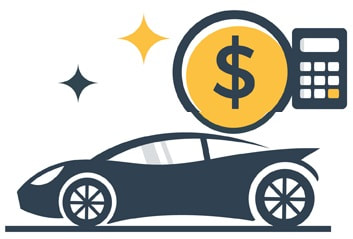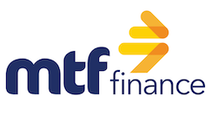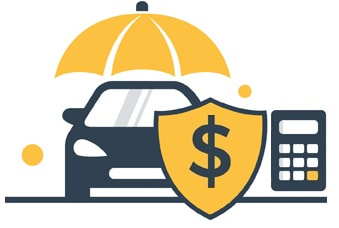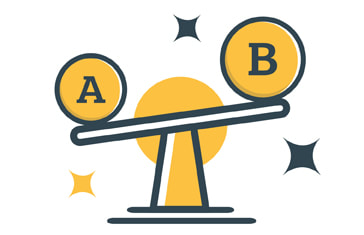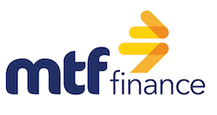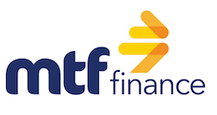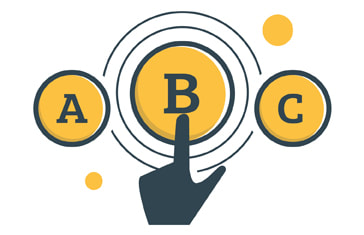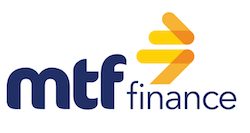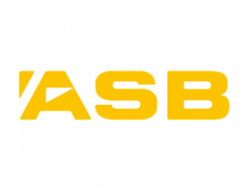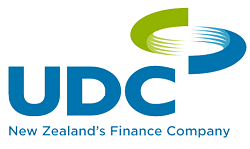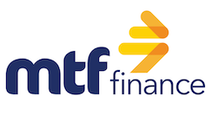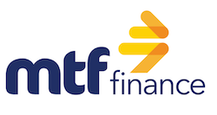Compare the Best Car Finance Offers - July 2024
Avoid paying too much when applying for car finance, with offers from around 9% p.a. We outline the latest deals and compare alternatives such as leasing, balloon payments, paying in cash and the best offers from trusted lenders.
Updated 12 July 2024
Summary
In this guide, we look at the fundamentals of car financing and reveal the best deals currently available. We cover:
Our video below explains everything you need to know to make an informed decision. MoneyHub Founder Christopher Walsh walks you through the guide and helps you understand the key aspects of borrowing to buy a car:
Summary
- Our guide to the best car finance options has everything you need to know to get the right deal and slash the cost of car finance. We make it easy to compare interest rates and fees, and help you get the best deal to keep the ongoing repayments low.
- If you need to buy a car and don’t have the money to pay for it upfront, car finance can be a cost-effective option to get you in the driver’s seat. But you need to pick an affordable lender.
In this guide, we look at the fundamentals of car financing and reveal the best deals currently available. We cover:
- What is Car Finance?
- Different Car Finance Options Compared - Car Finance vs Leasing vs Balloon Payments vs Credit Card vs Paying Cash
- Our 8 Essential Car Finance Tips and Facts
- Ten Must-Know Car Finance Facts
- What You'll Need to Apply for Car Finance
- The Best Car Finance Offers - Banks, Finance Companies and Specialist Lenders
- Frequently Asked Questions
- Examples of Car Finance - When it Goes Right, and When it Goes Wrong
- Our Conclusion
Our video below explains everything you need to know to make an informed decision. MoneyHub Founder Christopher Walsh walks you through the guide and helps you understand the key aspects of borrowing to buy a car:
|
Christopher Walsh, MoneyHub's Founder and Head of Research, shares his views on car finance:
Important: If you have a history of bad credit, this guide is not for you. Visit our dedicated Bad Credit Car Loans guide for specific guidance. If you are thinking about getting a guarantor on a car loan, our Car Loan Guarantors guide outlines what you need to know. Add-on Insurances: Car Lenders may offer you Mechanical Breakdown Insurance (MBI), Payment Protection Insurance (PPI) and Guaranteed Asset Protection Insurance (GAP). Our view is simple:
|
Christopher Walsh
MoneyHub Founder and Head of Research |
Know this first: Car finance can be expensive - researching car finance options will save you money
Disclaimer:
- Shopping for a car involves visits to showrooms, searching Autotrader.co.nz, Driven.co.nz and Trade Me and asking friends for their input, and for most people, it's an exciting time. However, frustratingly, few people invest the same time in finding the best car finance deal.
- Car financing options range from great deals to ripoffs - get the wrong financing and you could be stuck with crippling monthly payments for a long time.
- The right car finance for your needs is important - what you may have saved negotiating the price of your new car can easily be lost in a few months of expensive car repayments.
Disclaimer:
- Borrowing money to buy a car is a serious decision and needs to be carefully planned and budgeted for. This step-by-step guide outlines everything you need to know about getting a car loan and gives tips to make it as cheap and stress-free as possible.
- In the interests of full disclosure, MoneyHub may earn a referral bonus for anyone that’s approved through some of the below links. We publish the best publicly available car loan offers that we can find, irrespective of any pre-existing commercial arrangement.
|
Christopher Walsh
MoneyHub Founder |
MoneyHub's Top Car Finance Options - Avoid high interest rates and fees with our trusted lenders.
|
Our Three Trusted and Affordable Car Lenders Committed to Fast Quotes:
Current Car Lending Offers
Know this first:
- The repayment amounts exclude any upfront fees and/or ongoing fees a lender may charge.
- The interest rates below represent each lender's lowest rate. This is not necessarily the rate you will receive, and for this reason, we suggest considering your options carefully.
Enter Loan Information
Amount to Borrow
Repayment Period (Months)
Repayment Frequency
1. What is Car Finance?
If you’re buying a new or used car and need to borrow to pay for it, there are two main finance options available.
What's the difference?
Our video below explains how you can get the best car loan by understanding what impacts the overall cost:
- A personal loan – this is a loan offered by banks and finance companies that is unsecured or one that is secured against your car.
- A car finance agreement – this is a loan that is specifically for car purchase, and is offered by banks, finance companies and car dealers.
What's the difference?
- With both options, you will own the car outright – this means you’ll need to insure it too unless you are prepared to risk an accident that would write off the value of your investment while still leaving you with the loan.
- If your loan is secured, meaning the lender as a security interest in your car, then you still own the car. However, if you become unable to make the repayments, the lender has the power to repossess your car to help pay off the debt you owe.
- Our guide to personal loans outlines the options available whether you are considering a secured or unsecured personal loan.
- If you are thinking about getting a guarantor on a car loan, our Car Loan Guarantors guide outlines what you need to know.
Our video below explains how you can get the best car loan by understanding what impacts the overall cost:
2. Different Car Finance Options Compared - Car Finance vs Leasing vs Balloon Payments vs Credit Card vs Paying Cash
Generally, there are five different ways to pay for a car. We outline the key differences in the table below:
Finance Type |
Typical Length of Agreement? |
Deposit Required? |
Who Owns the Car? |
Mileage Restrictions? |
Debt Type |
None (pay for car with savings) |
N/A |
N/A |
You |
None |
N/A (No Debt) |
Credit Card |
Interest-free for 45-55 days |
No |
You |
None |
Unsecured |
Car Finance |
6 months to 5 years |
No |
You |
None |
Secured |
1 to 5 years |
Yes |
You |
Yes (in most cases) |
Secured |
|
2-3 years |
Yes |
Leasing Company |
Yes |
Unsecured |
Which option is best?
There is no 'best' option as each person's circumstances and requirements are different. Our guide below outlines more information on each option, as well as a comparison of the latest lending offers if you believe car finance to be the best option for your situation.
There is no 'best' option as each person's circumstances and requirements are different. Our guide below outlines more information on each option, as well as a comparison of the latest lending offers if you believe car finance to be the best option for your situation.
Cash savings – the cheapest option for almost every car purchase
If you've got the savings, buying a car in one payment means you'll avoid interest costs, loan fees, and you'll own the car from day one. However, if you're buying a new car, many models depreciate 25% to 40% in the first year, meaning leasing can work out to be cheaper.
Credit Card - a savvy way to finance a car (if you can pay it off quickly)
If you have a sufficient credit card limit and know you can repay the balance immediately (or within 1-3 months), credit cards are an affordable way to finance a car. Many dealers accept credit cards, and you can also send money to a bank account using a credit card by using a money transfer service. A low-interest credit card can help reduce the overall costs.
Car loans - usually the cheapest financing if you need to borrow and want to own the car outright
Interest rates range from around 9-10% p.a. to as high as 25% p.a., plus lending fees: the better your financial situation, the lower the interest rate. Once approved, the lender sends you the money or pays the person you're buying the car from directly. From there, repayments are made weekly, fortnightly or monthly over one to five years. At the end of the repayment period, the loan is cleared.
Balloon Payment financing - a risky and often costly way to finance a new car
Mostly offered by dealers, balloon payment financing can be suitable if you want to get a new car every few years. But the arrangements require a sky-high final payment, as well as interest costs and an upfront deposit. For all of these reasons, standard car loans will, in most cases, be a cheaper alternative.
Car leasing - a cheap way to access a car (but you'll never own the car)
Car leasing is essentially a long-term rental; you'll never own the car, and there will be mileage restrictions. The costs are simple - you pay an initial deposit and then an ongoing fee to drive the car. The standard length of a car lease contract is one to three years. Once the contract ends, you return the car and pay for any damage or excess mileage. Examples of manufacturers offering leasing include Honda, Toyota, Lexus and Hyundai, among others. Our guide to vehicle leasing has more information.
|
Christopher Walsh
MoneyHub Founder |
MoneyHub's Top Car Finance Options - Avoid high interest rates and fees with our trusted lenders.
|
Our Three Trusted and Affordable Car Lenders Committed to Fast Quotes:
3. Our 8 Car Finance Tips to Help You SAVE
- Get car financing agreed in principle BEFORE you starting looking for a car – you’ll save the most on fees and interest costs and know exactly what your budget is. You can also negotiate the price you pay like a cash buyer - it makes everything easier.
- Without question, the WORST place to get financing is at a car dealership just after you’ve decided on a car. You have no bargaining power, nor will you be familiar with other options in the market.
- The cheapest interest rate deals will be on secured loans – this means the lender has a right to sell your car if you can’t make the repayments (exactly like a bank can sell a house if the mortgage isn’t repaid).
- To pay the least amount in car financing, you’ll need the lowest interest rate, lowest application fees and the shortest term with the most frequent repayments (i.e. weekly vs monthly). i.e. If your loan is $10,000 and your interest rate is 15%, you’ll pay $4,000+ in interest if you pay it back over 5 years, but only $1,600 if you pay it back in 2 years.
- Most car finance terms are up to 5 years in length. Early repayment will slash the interest costs, but check the lender’s fees and charges to know how much that will cost.
- Avoid adding a car loan to your mortgage if you can help it – you’ll pay interest on the amount for a lot longer which costs you more in the long run. For example, a $10,000 loan at 7.50% over 25 years is much more costly than a $10,000 at 12.95% over three years.
- Missing repayments gets costly – lenders charge $25+ for each missed payment, so prioritise your repayments.
- See our cheapest car finance and loan tables to pick from the best deals currently available - and visit our personal loans guide to compare
4. Ten Must-Know Car Finance Facts
Car finance is a commitment to repay for an agreed-upon time-frame
|
The finance deal with the lowest interest rate is usually the best option, but be aware of upfront feesTo make an informed decision, you simply need to compare the annual interest rates offered between the lenders – the one with the lowest percentage is the best deal. Fees to get the loan will vary between lender, but the interest rate is the biggest factor in getting the best loan. Pick the wrong lender and you can easily pay $100 more every week on a $10,000 car.
For the purposes of this guide, we compare personal loans and car finance together (referring to it as “car finance”), as both operate near identically and the differences are largely indistinguishable to a borrower. |
Make sure car finance is right for your income and spending habitsCar finance may not suit everyone. If you have trouble paying debts in general, car finance could end up an expensive mess if you default.
The benefits:
Watch out for:
|
Car finance is offered by a lot of different companiesCar financing is a very competitive market – you shouldn’t go with the first quote you get. Look at all the options and be open-minded to financing beyond traditional banks - it can at times be cheaper. Car finance lenders include:
Buying a new car from a manufacturer-dealership?
Buying a used car from a manufacturer-dealership? Just like a new car, if you’re buying a used car from a manufacturer-dealer, it’s also worth looking at their in-house finance options. |
Avoid high-interest rates by making sure your finances are in orderThe interest rate you will pay will be determined by a few factors, which we detail below.
Figures provided by our Loan Amortisation Calculator
|
Make your repayments more manageableThere are a few ways to reduce your the amount you repay on car financing:
|
Don't delay acting if you notice a problem with the car
|
Know the consequences of missing a car repaymentGenerally, missing one repayment isn’t too serious – your lender will just follow up with a reminder and probably charge a small fee as a penalty. But, if you fail to make repayments one after another, your lender will take action and start legal proceedings to repossess your car.
The faster the lender can then sell your car, the less it will lose so your car is at risk of immediate seizure. You will also have a “default” put on your credit history. This will affect any further financing you need such as phones, other cars, mortgages etc. |
Get your details organised once you know you want to proceedWhen you have found a loan that you can afford and that offers a competitive interest rate, you can apply through the lender’s website or over the phone. You will need to confirm:
Once submitted, the lender will assess your application and run a credit check on you. The lender will then make a decision and notify you; if you’re successful, you will be told the loan amount and interest rate. To be eligible to sign the loan contract, you must:
The vehicle you intend to purchase should:
|
Get familiar with our car finance checklist to help your finances stay healthyBefore committing to any car loan or finance deal, it is essential to be cautious about what you can afford - being stuck with unaffordable monthly repayments is a fast road to misery.
|
|
Christopher Walsh
MoneyHub Founder |
MoneyHub's Top Car Finance Options - Avoid high interest rates and fees with our trusted lenders.
|
Our Three Trusted and Affordable Car Lenders Committed to Fast Quotes:
5. What You'll Need to Apply for Car Finance
Lenders are focused on affordability. To determine this, they look at many different factors around your income. In many cases, they will ask for:
Other details you'll need to supply:
- Two or three recent payslips
- The most recent IRD return
- Your after-tax income
- Employer's details
Other details you'll need to supply:
- Lenders will also look at your ongoing expenses, current debts/loans, and any assets you own.
- You'll also need to prove your ID by submitting your driver's licence, passport or birth certificate.
- Finally, if you know what vehicle you want to buy, the lender will likely ask for its number plate (to get the make, model, year and colour), VIN (as outlined here) and the for sale or purchase price.
Do I need a deposit to get a car loan?
This depends on the customer's risk profile. For example, if the lender thinks the profile warrants a deposit, they will ask for one. Examples include a young person in their first job - the risk is higher than someone more established, so the lender may ask for 10% or 20% to give them more comfort. But, again, what you'll be offered is unique and can only be determined in the application process.
Generally, there is never really a fixed percentage amount the lender wants as part of a deposit - it is all case by case. As a result, low-risk borrowers will often be able to borrow 100% of the car purchase price.
Generally, there is never really a fixed percentage amount the lender wants as part of a deposit - it is all case by case. As a result, low-risk borrowers will often be able to borrow 100% of the car purchase price.
6. Best Car Finance Offers - Banks, Finance Companies and Specialist Lenders
We've put together the best deals currently available, and list their upfront fees. Each lender will assess your ability to make repayments differently, which means you will most like be offered a range of interest rates by different lenders. What matters is that you can meet the repayments, understand terms and any associated fees.
A popular option is to contact a range of lenders for a non-obligation interest rate quote. Be clear on the amount you want to borrow upfront and what your income is, as well as all other loans/credit card balances you have.
Do you have a solid credit history and the income to make repayments without any foreseeable issue?
If you have good credit, we suggest contacting these three lenders for quotes:
Important: The interest rates stated above (and below) are the best offers - each borrower will be assessed for suitability, whereby an interest rate offer will be provided if the loan is approved. This interest rate may be higher than those disclosed below.
We suggest reading about Mechanical Breakdown Insurance, Payment Protection Insurance and GAP Insurance as these may be offered with a car loan either at dealer or with a lender directly. The more informed you are, the cheaper you car finance will be.
A popular option is to contact a range of lenders for a non-obligation interest rate quote. Be clear on the amount you want to borrow upfront and what your income is, as well as all other loans/credit card balances you have.
Do you have a solid credit history and the income to make repayments without any foreseeable issue?
If you have good credit, we suggest contacting these three lenders for quotes:
- Simplify - specialist car lending
- Harmoney - specialist personal lending with a dedicated loan for cars
- MTF Finance - specialist car lending with branches all over New Zealand
Important: The interest rates stated above (and below) are the best offers - each borrower will be assessed for suitability, whereby an interest rate offer will be provided if the loan is approved. This interest rate may be higher than those disclosed below.
We suggest reading about Mechanical Breakdown Insurance, Payment Protection Insurance and GAP Insurance as these may be offered with a car loan either at dealer or with a lender directly. The more informed you are, the cheaper you car finance will be.
Current Car Finance Options Available Throughout New Zealand - Rates, Fees and Details:
|
Simplify
|
|
Harmoney (Secured Car Loans)
|
|
MTF Finance
|
|
Better Finance
|
|
Co-operative Bank
|
|
AA Money
|
|
ANZ Bank
|
|
ASB Bank
|
|
Finance Direct
|
|
GEM
|
|
Geneva
|
|
Marac
|
|
Unity (NZCU BayWide)
|
|
UDC
|
|
Driva (Car Loan Broker)
|
|
Westpac
|
|
Christopher Walsh
MoneyHub Founder |
MoneyHub's Top Car Finance Options - Avoid high interest rates and fees with our trusted lenders.
|
Our Three Trusted and Affordable Car Lenders Committed to Fast Quotes:
7. Frequently Asked Questions
Car finance isn't complicated, but there are pitfalls. We strongly suggest asking a lender anything you're unsure of BEFORE signing up to any loan. This is the best way to lower the risk and ensure you can afford the loan repayments. Our selection of common questions helps explain car finance in further detail:
The lender advertised “from 9.99%”, but I was quoted a much higher rate - why is this?
What the lender advertises and what it offers to most people are entirely different. Your interest rate will depend on your credit history, the vehicle you are buying, your income and other factors.
Why is car finance so expensive compared to other loans?
Cars, unlike property, fall in value every day, so lending money on an asset that is worth less as time goes on is high-risk. Many finance companies have gone bankrupt lending to drivers who couldn't repay their car loan, and repossessing the vehicle doesn't recover much of the value. For example, a $10,000 car after two years is probably worth $6,000, but if $8,000 is owed on the loan, then the lender takes a loss. For this reason, interest rates are high and your credit history is very important when the lender offers you financing.
What happens if I want to pay off the outstanding balance early?
You can do this at any time, but check the fees you’ll pay – some lenders charge, some don’t. If you plan to repay early then it's best to look at loans that offer this free of charge. The easiest way to arrange early repayment is to contact the lender.
Do I need to take out insurance and where should I get it?
Yes, even if your car finance isn't secured, having insurance protects you from financial loss if you cause damage to another vehicle. Our car insurance guide outlines the best policies available.
How long does it take for an application to be assessed?
Many lenders offer same-day responses, so you'll be able to get a loan in principle for when you decide to go ahead with a car purchase. Some lenders even offer instant or same-hour approvals.
What happens at the end of the finance deal?
Nothing changes other than you stop making your regular repayment to the lender. Any security over the car will be discharged (either for free or at a fee). This means you will be free to sell the car later on without any complications.
8. Examples of Car Finance - When it Goes Right, and When it Goes Wrong
Getting a car loan has its risks and rewards. Below, we share stories from everyday New Zealanders to help you make the best decision for your needs and plan for the repayments.
1) Sophie's Smart Choice with Car Finance
Key Points:
Sophie shares her experience:
"I understood the importance of not overspending on a car. By finding a loan that fit my budget, I was able to comfortably manage my payments without sacrificing other financial goals".
Mike's Hasty Decision Leads to Car Finance Troubles
Key Points:
Mike shares his experience:
"I was so excited by the car that I didn't think about the long-term impact of the loan. The repayments quickly became a burden, affecting my overall financial health".
Learning from These Experiences:
1) Sophie's Smart Choice with Car Finance
- Sophie, a 32-year-old nurse from Dunedin, needed a reliable car for her daily commute. She carefully considered her budget and financing options.
Key Points:
- Loan Amount and Purpose: Financed $12,000 for a dependable, used car.
- Research: Sophie compared various lenders for the best interest rates and terms.
- Credit Profile: Good credit history, enabling her to secure a 9.50% p.a. interest rate.
- Repayment Plan: Chose a 5-year term, fitting comfortably within her budget.
- Outcome: Acquired a reliable vehicle for work without overstretching her finances.
Sophie shares her experience:
"I understood the importance of not overspending on a car. By finding a loan that fit my budget, I was able to comfortably manage my payments without sacrificing other financial goals".
Mike's Hasty Decision Leads to Car Finance Troubles
- Mike, a 27-year-old retail manager from Napier, was enticed by a new sports car. He rushed into a high-interest car loan without thorough consideration.
Key Points:
- Loan Amount and Purpose: Borrowed $35,000 for a new sports car.
- Impulsive Decision: Mike chose the first financing option offered by the dealership.
- Credit Profile: Good earnings, but some credit card debt resulted in a high interest rate of 19.99% p.a.
- Repayment Plan: Opted for a 5-year term, underestimating the financial strain.
- Outcome: Struggled with large monthly payments, impacting his ability to save and invest.
Mike shares his experience:
"I was so excited by the car that I didn't think about the long-term impact of the loan. The repayments quickly became a burden, affecting my overall financial health".
Learning from These Experiences:
- Consider All Aspects: Understand the total cost of ownership, including loan repayments, insurance, and maintenance.
- Don't Rush: Take time to research and compare different financing options.
- Fit Within Budget: Ensure the loan fits within your budget without compromising other financial obligations. Car loans need to be repaid month after month, so it's critical can afford that comfortably.
- Be Realistic: Choose a vehicle that meets your needs and is within your financial means.
9. Our Conclusion
Car Finance is relatively easy to obtain, but it has long-term costs. Before agreeing to any loan deal, please be aware of the following:
- It's easy to compare deals and get quotes; please spend time sourcing quotes upfront. You'll save money by doing so, whereas if you give the job to the car dealer, you'll probably pay a lot more and have nothing to compare with.
- Some car finance deals come with hidden costs and strings attached. Please read the fine print and understand all charges and potential future liabilities.
- Car finance, if not managed correctly, can have long-term impacts, and many people get into financial hardship when their car loan is unaffordable. Don't over-borrow - the risks are too high.
- While not always feasible, paying in cash is often the simplest and most transparent method, ensuring that there's no interest or additional charges to worry about in the future.
|
Christopher Walsh
MoneyHub Founder |
MoneyHub's Top Car Finance Options - Avoid high interest rates and fees with our trusted lenders.
|
Our Three Trusted and Affordable Car Lenders Committed to Fast Quotes:
Related Guides:
Best Car Finance
Popular Comparisons
Popular Guides
Car Finance Company Reviews:
Car Loan Insurance
Business Car Financing:
Best Car Finance
Popular Comparisons
- Personal Loan vs Car Loan - What is Better for Buying a Car?
- Car Dealership Finance vs Alternative Finance
Popular Guides
- How to Save for a Car
- Car Loans and Collateral
- Car Loan Guarantors
- Bad Credit Car Loans
- Balloon Payments
- How to Refinance Your Car Loan
- Car Loan Refinance Calculator
Car Finance Company Reviews:
- Simplify Review
- MTF Finance Review
- AA Money Review
- Better Finance Review
- Kiwi Car Loans Review
- Car Loan Brokers vs Direct Car Finance Companies
Car Loan Insurance
- Mechanical Breakdown Insurance (MBI)
- Guaranteed Asset Protection Insurance (GAP)
- Payment Protection Insurance (PPI)
Business Car Financing:

